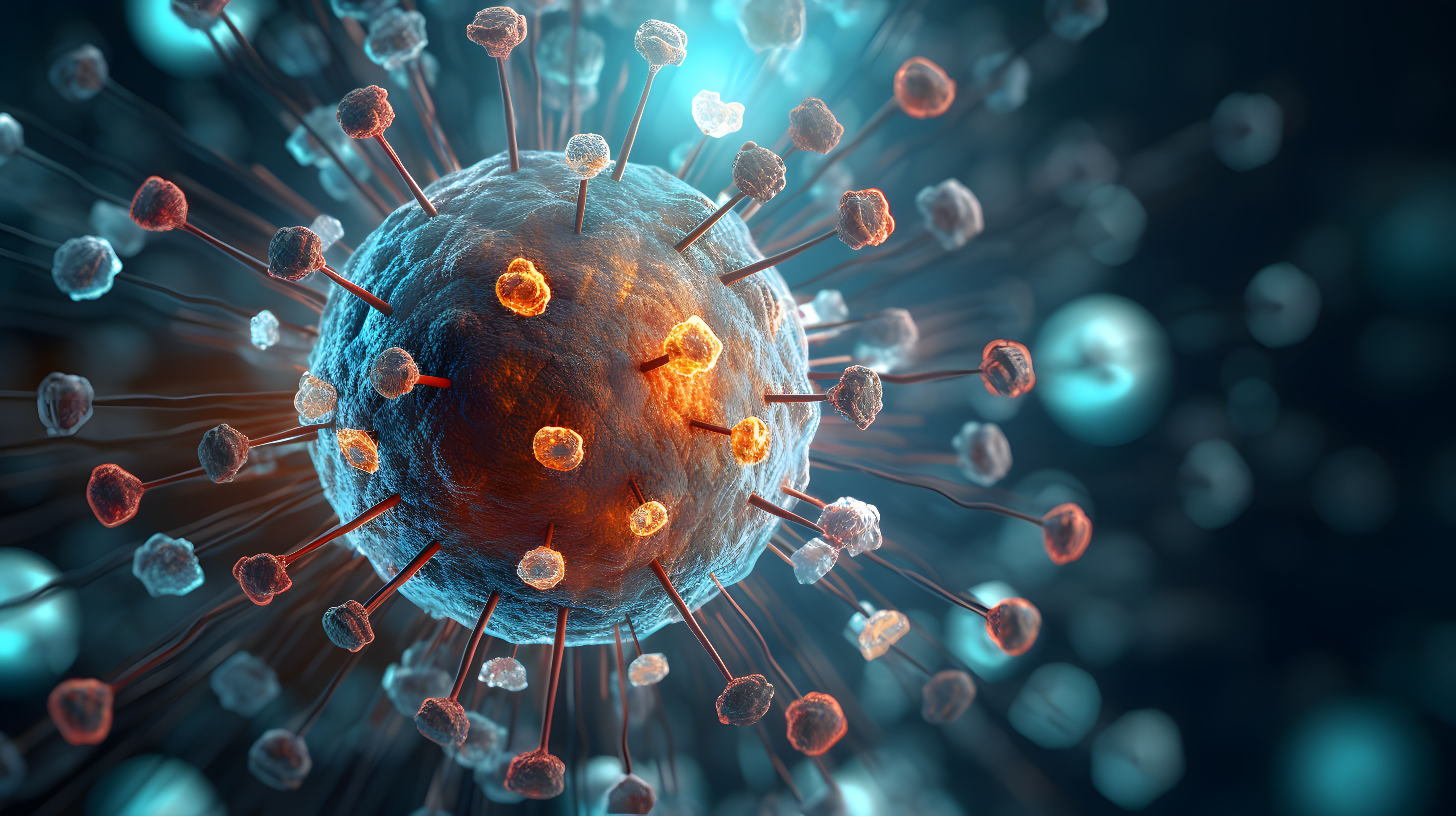News
Article
Large Review Suggests IVIG is Effective for Neurological Diseases Following COVID-19 Infection
Author(s):
Intravenous immunoglobulin found to provide fast and long-lasting relief for COVID-19-related neurological conditions, although investigators are still uncovering the pathology of many of these conditions.
Intravenous immunoglobulin (IVIG) therapy may be safe and effective treating COVID-19-related neurological diseases, according to the results of a narrative review published in the journal Frontiers in Neuroscience. IVIG is a versatile tool with many therapeutic indications and multiple molecular targets and mechanisms of action.
Image credit: Oksana | stock.adobe.com

“From a pragmatic point of view, IVIG was a successful therapy against all the peripheral neurological pathologies in patients affected by SARS-CoV-2,” the study authors wrote in the article.
IVIG is an immunomodulatory therapy that targets inflammatory and autoimmune processes that contribute to long-lasting neurological symptoms and conditions. The mechanism of action of IVIG appears to be widespread, the study authors noted, as it may regulate T cells to defend against the virus, cross-react antibodies from previous infections (i.e., COVID-19) to neutralize the virus, and inhibit B-cell proliferation to prevent worsening condition.
“Based on this clinical experience, the possibility to treat COVID-19-related dysimmune neurological diseases, especially at the beginning of the pandemic, has been proposed as a potential life-saving therapeutic option for several patients, despite the few information known at the time about the virus–host interaction,” the study authors wrote.
They added that the mechanisms of action of IVIG is indicative of the complexity of the structures and functions of human antibodies, which is illustrated by the multiple indications for IVIG therapy.
To conduct the review, investigators reviewed indexed medical literature to answer the determine whether IVIG could effective treating COVID-19-induced neurological disorders. They analyzed 130 studies to provide a comprehensive overview of IVIG for patients with neurological immune-mediated complications following COVID-19 infection, titled “neuro-COVID.” Neurological conditions can include mild sequelae such as drowsiness, loss of memory, brain fog and headache, or more serious events of stroke, encephalitis, epilepsy, myelitis, and inflammatory polyneuropathy.
In several case studies, IVIG was beneficial for serious conditions. For example, a study published by Yousuf et al. (2021) showed that an older male patient who presented symptoms of encephalitis, a severe neurological disorder that causes neuropsychiatric symptoms and hallucinations, received IVIG at 0.4 g/kg/day for 5 days and significantly improved, according to neuro-cognitive tests. The treatment also provided a significant response for patients with multidrug resistance, according to results from the NORSE study.
This treatment has been found to have a tolerable safety profile and there are no new safety concerns identified in the current study. The most common adverse events (AE) associated with IVIG include flu-like symptoms, headache, and dermatological reactions.
Future research should evaluate disease pathophysiology to learn which patients will benefit from IVIG. Investigators should also evaluate IVIG as a preventative treatment for post-COVID-19 neurological conditions, the biomarkers for neurological issues, and understand that diagnosing central nervous system (CNS) diseases still poses a challenge.
There are no conclusive results that describe why patients who had COVID-19 are at risk of neurological disease. Previous research suggests that when the immune system responds to COVID-19, it can trigger a new nervous system condition. Previous hypotheses suggest that the disease invades the CNS and brain via the blood, or peripheral nerve terminals.
“All reviewed studies were in agreement of detecting an acceptable to great efficacy upon IVIG employment in neurological diseases, with no or mild adverse effects,” the study authors concluded in the article.
Reference
Manganotti P, Garascia G, Furlanis G, Stella AB. Efficacy of intravenous immunoglobulin (IVIg) on COVID-19-related neurological disorders over the last 2 years: an up-to-date narrative review. Front Neurosci;17. April 2023. DOI: 10.3389/fnins.2023.1159929
Newsletter
Stay informed on drug updates, treatment guidelines, and pharmacy practice trends—subscribe to Pharmacy Times for weekly clinical insights.






